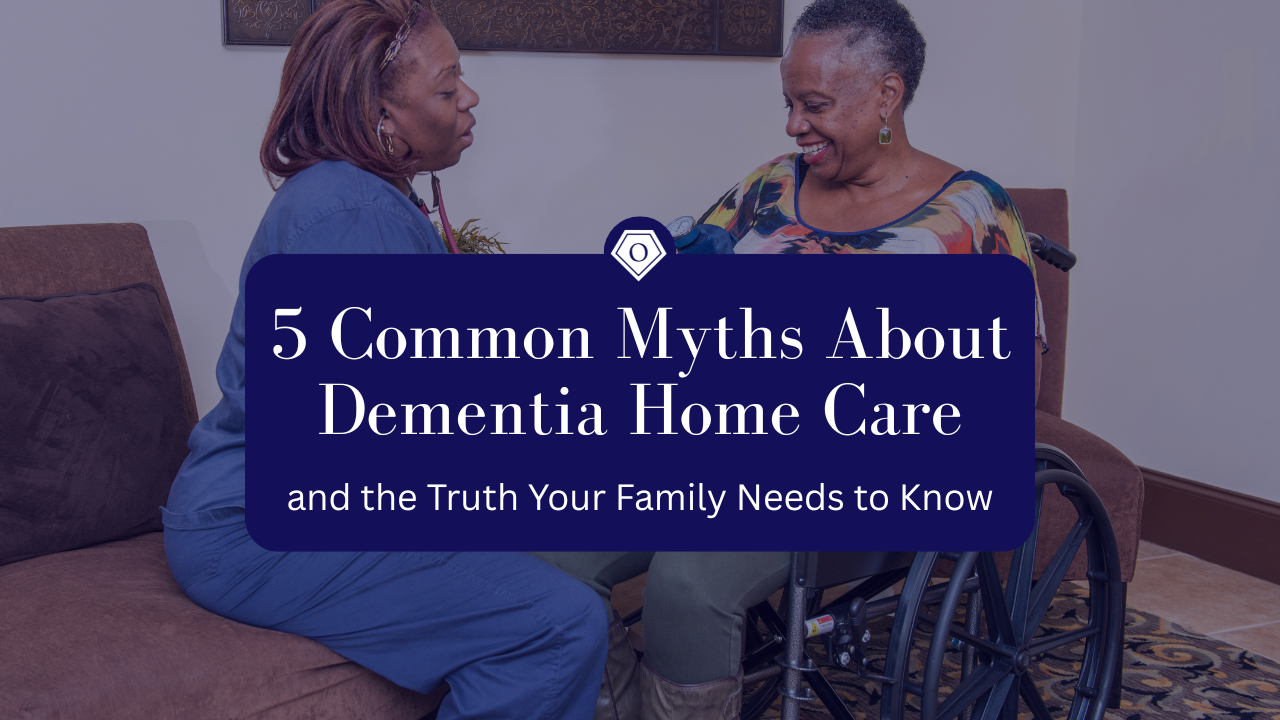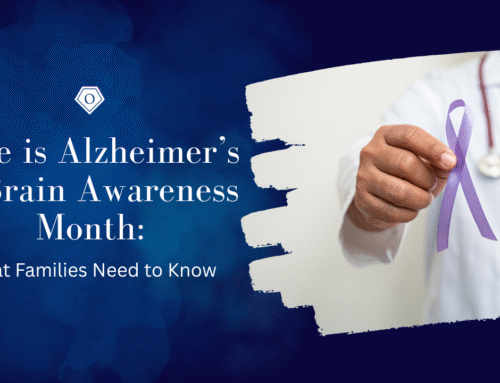Caring for a loved one with Alzheimer’s or dementia comes with emotional, physical, and mental challenges. As families look into in-home care, they’re often held back by misconceptions—many of which delay getting the right help in place.
In this post, we’re debunking five common myths about dementia home care so you can make informed decisions that protect your loved one’s safety—and your own well-being.
Myth #1: Dementia Home Care Is Only for Late-Stage Alzheimer’s
The Truth: Support is most effective when it starts early.
In-home dementia care isn’t just for the final stages. Starting care early helps establish routines, reduce confusion, and keep your loved one safe and engaged at home for as long as possible.
Early support also gives family caregivers a chance to breathe—and plan ahead with less stress.
Myth #2: My Loved One Doesn’t Need Care Yet—They Just Forget a Few Things
The Truth: Small memory slips can lead to big risks.
Leaving the stove on, wandering, or forgetting medications can have dangerous consequences. A trained dementia caregiver provides supervision and structure that keeps your loved one safe—even in the early phases of the disease.
Myth #3: Family Members Should Handle the Care
The Truth: Caregiving is a full-time job—and burnout is real.
Many families try to “do it all” out of love. But without training in dementia-specific communication and behavior management, frustration can build—and accidents can happen.
Professional caregivers trained in dementia care provide compassionate support, reduce behavioral triggers, and give families much-needed respite.
Myth #4: Dementia Home Care Is Too Expensive
The Truth: In-home care can be flexible and cost-effective.
Compared to memory care facilities or assisted living, dementia home care is often more affordable—and more personal. You can schedule care as needed, from just a few hours a day to 24/7 support.
There may also be financial assistance available through Medicaid waiver programs, the VA, or long-term care insurance.
Myth #5: All Caregivers Know How to Handle Dementia
The Truth: Dementia care requires specialized training and experience.
Not every caregiver is equipped to handle the unique challenges of dementia. Look for a home care agency that invests in training for communication, redirection, and memory-friendly routines.
Ask about their experience with Alzheimer’s, wandering prevention, and managing behavioral symptoms with compassion—not force.
The Right Dementia Care Helps Your Loved One—and You
Home care can be a lifeline—not just for the person living with dementia, but for the family surrounding them. The earlier you start, the more support you’ll have to navigate this journey with peace and confidence.
Dementia & Alzheimer’s Care
Onyx Home Care’s neurological disorder care is built around a system of support. This service includes skilled home care as well as a unique program that centers on the patient’s interests and stage of illness. Our goal is to see happy family members, patients and caregivers. Often times, caregivers feel remote. Our team includes each person in the home care process to provide inclusive care that helps the patient thrive.






